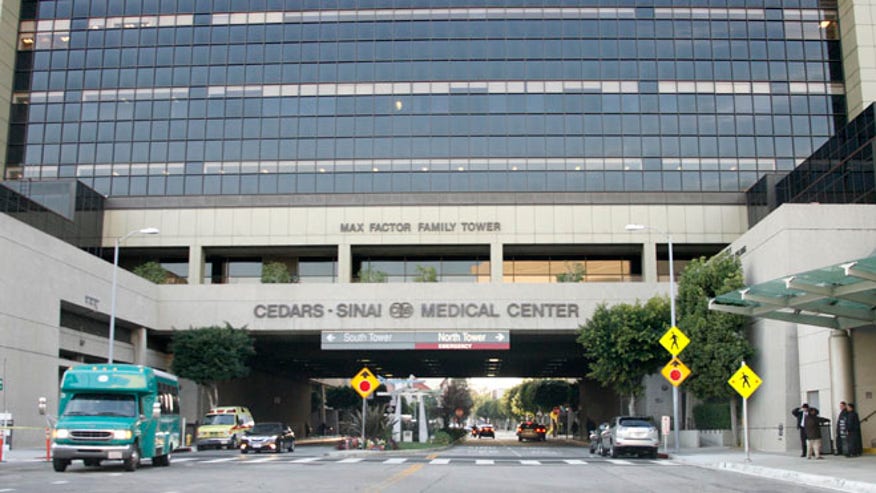
An exterior view of the Cedars Sinai Medical Center in Los Angeles, Calif. taken on December 9, 2009.(REUTERS)
If you like your hospital, you might not be able to keep it.
In the latest surprise to emerge during the implementation of the Affordable Care Act, people seeking insurance on the ObamaCare exchanges are finding the plans limit access to some of the best-ranked hospitals and cancer centers in the country.
The access problem is a byproduct of the effort to drive down costs of subsidized coverage, prompting insurance companies to shy away from more expensive facilities.
That doesn't necessarily mean someone buying insurance through ObamaCare is locked out of those hospitals. In some cases, patients could go "out of network" in order to use the medical center of their choosing -- but would have to pay more in the process.
According to a former top health care adviser for the White House, that's how the program was designed.
Challenged on "Fox News Sunday" over why Americans are losing access to their current doctors and hospitals, ObamaCare architect Ezekiel Emanuel claimed President Obama did not mislead on that point, despite his refrain that if people liked their doctors and policies they could keep them.
"The president never said you were going to have unlimited choice of any doctor in the country you want to go to," Emanuel said. "He didn't say you could have unlimited choice."
In a remark that has since generated considerable controversy, Emanuel added: "If you want to pay more for an insurance company that covers your doctor, you can do that."
Indeed, The Financial Times reported that most plans being sold on the exchanges in New York, Texas and California do not offer access to some of the top medical centers in those states.
New York's Memorial Sloan Kettering, Houston's MD Anderson Cancer Center and Los Angeles' Cedars-Sinai Medical Center are left out of most plans -- meaning those who want to go there would likely have to pay more.
Watchdog.org, in a recent report, found that 11 of the top 18 hospitals (as ranked by U.S. News & World Report) were connected with just one or two insurance carriers on the exchanges. In Ohio, for instance, the Cleveland Clinic was connected with one insurance company.
Asked about the shifting policies under ObamaCare and their impact on choice, a representative with The University of Texas MD Anderson Cancer Center released a statement to FoxNews.com saying, "all patients deserve access to top tier cancer care" -- and that while not everyone needs to come to MD Anderson, "we believe both insurance providers and our health care system must work together to ensure patients have that option so that all of us have the best chance of beating cancer."
Though some complain about these centers' high costs, the statement argued that "our country's leading cancer centers help bring down the cost of care for all patients by conducting research that leads to new and better treatments, better cancer fighting strategies and increased efficiencies that lead to cost savings."
"We're very concerned," Thomas Priselac, president of Cedars-Sinai Health System in California, told The Financial Times. "[Insurers] know patients that are sick come to places like ours. What this is trying to do is redirect those patients elsewhere, but there is a reason why they come here. These patients need what it is that we are capable of providing."
It's not just the insurance companies that are deciding to drop certain hospitals from their plans. In some cases, the hospitals themselves are opting out, unwilling to go along with proposed lower rates.
Robert Zirkelbach, spokesman for America's Health Insurance Plans, defended the insurance industry's move to trim costs where it can -- noting that the law's benefit requirements end up raising costs.








0 comments:
Post a Comment